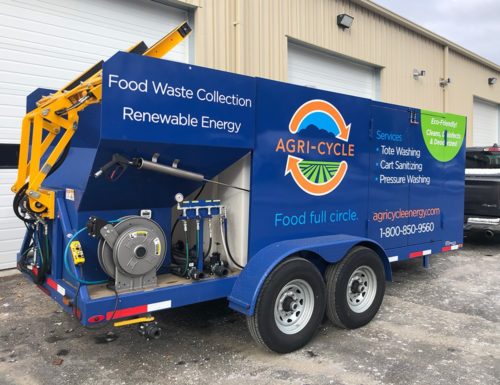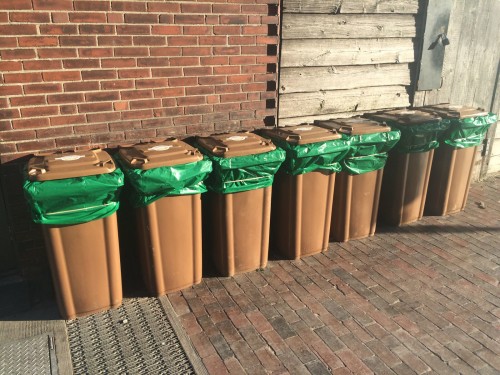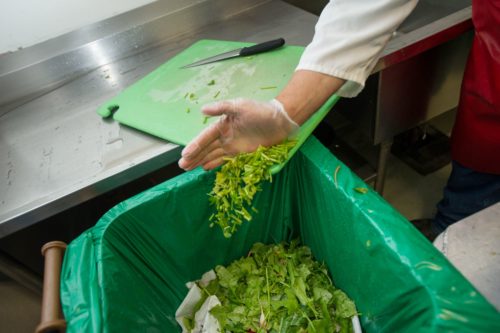Mitigating Concerns About Food Waste Smells: A Comprehensive Guide
One of the most frequent concerns we hear from potential clients is about the smell associated with food waste. “Why does my food waste smell so bad? How can I handle this?” are questions we often encounter. These are valid concerns, and the good news is that there are effective ways to address them.
Understanding the Source of the Smell
Contrary to popular belief, compost programs don’t inherently smell bad. The distinct odor of food waste is a natural byproduct of organic decomposition. The intensity and nature of the smell can vary depending on the decomposition stage. It’s crucial to note that food waste programs aren’t always the culprits behind these odors.
In many cases, the container holding the food scraps is the primary source of the smell. If residues from previous organic waste aren’t cleaned properly, the container can produce a more potent odor than the food waste itself. It’s essential to consider: when was your dumpster or toter last cleaned?
Environmental factors like summertime heat can intensify these odors. Compactors, often located outside buildings, can act like ovens, amplifying the smell. Their frequent opening also allows other odors to escape. On the other hand, totes designed for food waste collection can be easily cleaned and rinsed, making them a preferable alternative to compactors.
Addressing the Concerns: Why Our Solution is Better
It’s vital for our prospects to understand the comparative advantages of our services:
- Existing Smells: Prospects already deal with food waste odors in their compactors or dumpsters. Our solution merely shifts the waste to a more manageable container.
- Location: Compactors are typically attached to buildings, allowing smells to permeate indoor spaces. Our 64-gallon toters are placed outside, preventing odors from infiltrating facilities or stores.
- Heat Amplification: Compactors can act like ovens, especially during summer. Our plastic 64-gallon toters come with lids and can be stored in walk-in coolers or freezers, reducing the heat effect.
- Packaging Integrity: Compactors often rupture and open packaging, leading to leaks and intensified smells. Our toters don’t compact products, ensuring packaged food waste remains sealed and better contains odors and liquids.
- Frequency of Emptying: Compactors and dumpsters are often emptied after weeks, allowing food to rot for extended periods. Our toters are picked up 1-3 times a week based on need, reducing the time waste sits and decomposes.
- Cleanliness: Compactors and dumpsters aren’t cleaned frequently. Our 64-gallon toters come with liners and are easier to rinse out regularly.
Practical Tips to Minimize Odors
For our partners using totes:
- Store your toter in a walk-in cooler until staging for pick-up.
- Always use a liner before filling the tote with food scraps.
- Regularly rinse your toters. If this seems cumbersome, we’re here to help! Contact us for a quote.
For residential drop-off users:
- Rinse your counter bin once a week in winter and twice in summer.
- Store your food scraps in the freezer between drop-offs.
- Add coffee grounds or citrus peels to your food waste to neutralize odors.
Agri-Cycle’s Advanced Solutions
We’re proud to introduce Agri-Cycle Energy’s container cleaning service, facilitated by our Tote Washing Trailer. This service not only helps reduce food waste odors but also offers more frequent pick-ups. For a nominal fee, clients can have their toters or food waste receptacles cleaned weekly. Plus, when you opt for this service, we’ll provide an odor-free, eco-friendly liner for your food waste container.

In conclusion, while food waste does have inherent odors, our solutions and best practices ensure that these smells are managed effectively and efficiently. By understanding the causes and adopting our recommended measures, you can make food waste recycling a seamless and odor-free process.
If this blog got you interested in learning more about sustainable solutions for your commercial food waste, we can help. At Agri-Cycle, we’re proud to help businesses (and cities) throughout the northeast – from Maine to Maryland – find better ways of dealing with and reducing their food waste. Contact us to take your food full circle by getting a quote or calling us at 1-800-850-9560.



